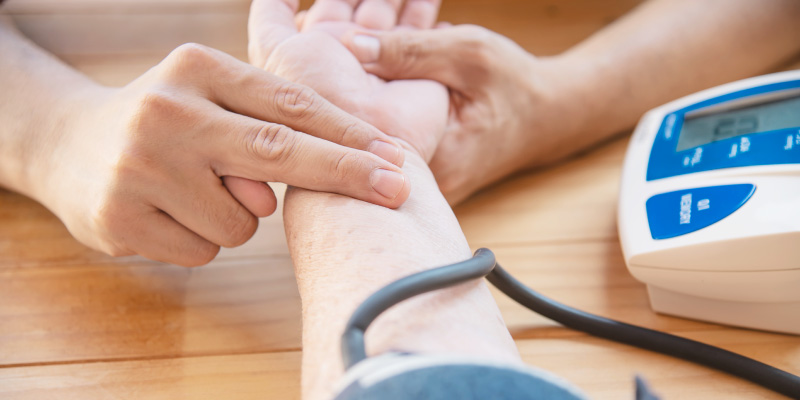An enlarged heart is not a disorder but it is a sign of other accompanying conditions and diseases. An enlarged heart also referred to as cardiomegaly, can be a result of short-term stress or a medical condition like pregnancy, coronary artery disease, heart muscle problems, heart valve problems, or irregular heart rhythms.
Some conditions can lead the heart muscle to grow thicker or can cause any one of the heart chambers to expand, causing an enlarged heart. It can be permanent or temporary.
Some Common Facts about Enlarged Heart

- An enlarged heart is an expansion in the size of the heart.
- It is not a disorder but a sign of accompanying conditions and diseases.
- It is medically termed as cardiomegaly.
- An enlarged heart can be caused by several distinct conditions, like diseases of the heart valves or heart muscle, arrhythmias, high blood pressure, and pulmonary hypertension.
- Sometimes it can also accompany anemia and thyroid diseases.
- The infiltrative diseases in which hemochromatosis or amyloidosis accumulate in the tissues can also lead to the enlargement of the heart.
- Pericardial effusion can lead to an enlarged heart. It is the buildup of fluid in the sac circling the heart.
- An enlarged heart is usually accompanied by cardiomegaly.
- There are two types of cardiomegaly, dilatation, and hypertrophy. In dilatation, the heart walls grow thin, dilate, and weaken. And in hypertrophy, the heart walls thicken leading to the heart to grow less effectively.
Causes of Enlarged Heart
An enlarged heart can be induced by conditions that cause the heart to pump blood harder than normal or damage to the heart muscle. If the heart grows larger and weak for unknown reasons, then it is called idiopathic cardiomegaly.
A congenital heart condition, arrhythmia, or damage from a heart attack can cause the heart to enlarge. The most common reasons for the heart to enlarge are high blood pressure and ischemic heart disease. Ischemic heart disease occurs when the blood is prevented from getting to the heart due to narrowed arteries, caused by fat deposits in the arteries.
Conditions associated with an enlarged heart are:
- High blood pressure: Thickening and enlarging of the muscles are caused when the heart pumps harder to deliver sufficient blood to the body. High blood pressure can cause enlargement of the left ventricle, eventually causing the heart muscle to weaken. It can also enlarge the upper chambers of the heart.
- Heart valve disease: There are four valves in the heart that keep the blood flow in the right direction. If the valves are weakened or damaged due to conditions like infections, a heart defect, rheumatic fever, connective tissue disorders, atrial fibrillation, some medications, or radiation treatments, then the heart may enlarge.
- Cardiomyopathy: It is a progressive heart disease that makes the heart work harder to pump sufficient blood for the body. As the disease grows, the heart may enlarge in an attempt to pump more blood.
- Pulmonary hypertension: The heart pumps blood harder to move it between the lungs and the heart. This may result in the enlargement of the right side of the heart.
- Pericardial effusion: Fluid accumulation in the sac that holds the heart may result in the heart appearing enlarged on a chest X-ray.
- Coronary artery disease: Plaque formed in the arteries obstructs blood flow through the heart vessels, which can cause a heart attack. If a part of the heart muscle dies, the heart pumps harder to get a sufficient amount of blood for the body, causing it to enlarge.
- Anemia: It is a disorder in which there are not sufficient red blood cells to carry an adequate amount of oxygen to the tissues. Untreated anemia can cause a rapid or abnormal heartbeat. The heart pumps harder to make up for the lack of oxygen in the blood.
- Thyroid disorders: The hormones produced by the thyroid gland controls the body’s metabolism. Both hyperthyroidism and hypothyroidism can lead to heart issues, including an enlarged heart.
Symptoms of Enlarged Heart
In some cases, the enlarged heart has no signs or symptoms or can go unnoticed as the condition progresses slowly. Some of the symptoms of the enlarged heart are:
- Palpitations
- Tiredness
- Shortness of breath
- Fatigue
- Chest pain
- Edema
- Weight gain
- Arrhythmia
- Swelling in the leg
- Dizziness
If the heart is unable to pump sufficient blood, then it can be an indication of congestive heart failure and its symptoms are:
- Leg swelling
- Weight gain, especially in the midsection
- Shortness of breath
- Tiredness
- Palpitations
Signs and symptoms that indicate a medical emergency are:
- Fatigue
- Shortness of breath
- Chest pain
- Dizziness
Diagnosis of Enlarged Heart

If there are signs and symptoms of an enlarged heart, then the doctor will conduct some physical exams to determine the heart’s condition and to find out the cause of the condition. These are some of the tests that the doctor may conduct:
- Electrocardiogram: This test records the impulses through waves. Electrocardiogram assists the doctor to diagnose heart rhythm issues and damage caused due to a heart attack.
- Chest X-ray: It helps the doctor to determine the condition of the heart and lungs.
- Echocardiogram: This test employs sound waves to produce an image of the heart for monitoring and diagnosing an enlarged heart. Echocardiogram evaluates the four chambers of the heart.
- Stress test: A stress test also known as an exercise stress test, gives information regarding how the heart works during physical activities. This test normally includes cycling or walking on a treadmill while the blood pressure, heart rhythm, and breathing are monitored.
- Blood tests: The doctor may conduct blood tests to examine the levels of certain elements in the blood that may lead to a heart issue. It can also assist the doctor to determine conditions that may cause the symptoms.
- Magnetic resonance imaging (MRI): In an MRI, radio waves and magnetic fields are used to produce signals that form images of the heart.
Conclusion
Cardiomegaly or an enlarged heart is not a disorder and it can be cured with proper treatments and medications. Consult a doctor if any of the symptoms of an enlarged heart are visible.




